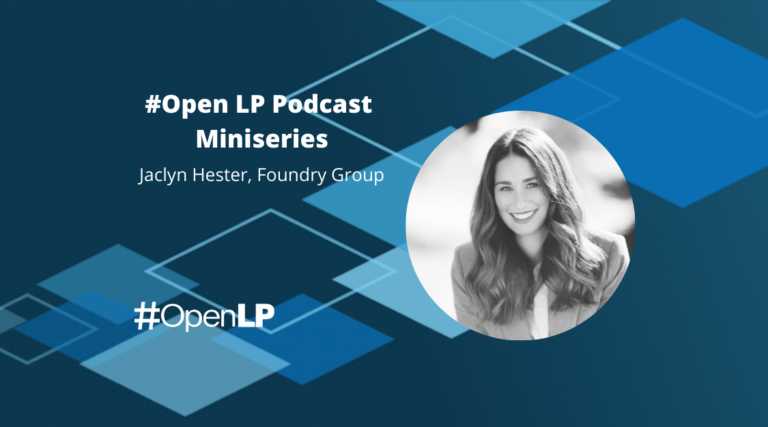This article originally appeared in the Kauffman Fellows Journal.
Raising capital as a first-time venture capital manager (or “VC”) is always challenging – primarily due to a lack of track record and performance coupled with not knowing or having access to prospective limited partners (those entities or individuals who invest in venture funds or “LPs”). This dichotomy can become more pronounced and exacerbated when capital becomes tighter, and events or other in person means for meeting people go virtual, further limiting access, for example, during the COVID-19 pandemic.
However, even a pandemic doesn’t stop all new managers from securing capital. Despite the fact that recent fundraising has been dominated by established funds, some capital is still directed to new managers who can prove their value and differentiate themselves to LPs. Looking back further in time, even when limited partner capital was scarce due to economic recessions, first time funds continued to be raised then too. Sapphire Partners engages with dozens of emerging managers every year, and those most successful in raising capital traditionally follow these four P’s of Fundraising.
1. Patience
Fundraising as a first-time manager almost always takes longer than you anticipate, and it’s likely to take even longer in a capital-constrained market, where you can’t meet LPs in person. Keep this in mind when speaking with LPs about your fundraising timeline, and with entrepreneurs about your ability to invest.
In general, we believe LPs move as slowly as they need to get excited about, and comfortable with a VC. Also, unlike a VC who has a certain time frame to deploy their capital into new portfolio companies, LPs do not typically have the same legal construct obligating them to make new VC relationships. Instead, LPs have the option to continue to invest their capital in their existing portfolio. As a result, fund managers need to have patience and focus on building relationships over a long period of time, anywhere from months to years. This process may be even longer for emerging managers and first-time funds who do not have a track record that helps LPs get excited.
We know that emerging managers are eager to start investing as soon as they can. However, since LPs are looking for a relationship that will last years if not decades, you should view the fundraising process as the dating period before jumping into marriage.
For LPs, it’s essential to build trust and understand the character of an emerging manager. Ideally, LPs like to see you in action – observe your strategy and how you perform over a period of time before investing. Further, when an LP invests in a fund they are mentally also assuming they will be with this VC for a number of funds. LPs look to make relationships with VCs that will last decades, this is also different from how a VC invests in a portfolio company. For that reason, LPs often prefer to get to know a VC across cycles. That’s one reason so many of your fundraising meetings may be relationship building rather than capital accumulating. That means you have to be patient, but also…
2. Persistence
As an emerging manager, be prepared to hear “no” a lot.
Unless you’re a manager coming from an established firm, with a strong, transferable track record, and a following of LPs waiting for you to break out and start your own fund, you will likely have dozens if not hundreds of LP meetings.
While hearing “no” all the time can be demoralizing, it’s important to recognize how small the LP world is. LPs talk to each other and run references as part of their diligence process. As an emerging manager, character references are one of the more concrete data points an LP can grasp given the lack of track record. But even if you get a “no” this time around, that does not mean it’s a “no” forever. You need to be persistent in building and maintaining those relationships as you develop your reputation. Find opportunities to remain top-of-mind for LPs and think of each touchpoint as building toward the next fund.
There will be a lot of passes and it will be psychologically discouraging, but you will find LPs become interested at some point in the future. Take advantage of these meetings and use them as an opportunity to receive constructive feedback. Every LP has different preferences and is looking for different attributes in a VC at different points in time. Or in other words, each LP you will speak to will most likely have their own portfolio construction and return objectives which could be very different from the next one with whom you speak. LPs just need to know that you fit their portfolio needs, which is when you need to be…
3. Persuasive
Being persuasive means refining your message to be absolutely convincing in the shortest period of time possible. After all, your years of relationship building may come down to a single 30-minute Zoom call that seals the deal with an LP. The market is overflowing with venture capital firms, and you need to clearly define what differentiates you and why this LP needs to use one of their few bets this year on you.
Your deck needs to be tight – concise and compelling. To minimize the amount of work that you have to do in LP meetings, do the legwork upfront. Make sure your deck is so comprehensive yet succinct that an LP can look over it and know who you are, what you’re going to do, your edge, and so on.
Do not waste precious meeting time going through items that are better read in a deck. Make sure all the most crucial points are conveyed in the deck.
Where you want to focus the meeting is your story, the way you pitch the LP, and the ensuing conversation. Present the right details at the right time and reference the supporting evidence in your deck. Manage the pitch to make sure you get through everything you need to. Here are a few things I will want to understand for the single VC starting a fund:
- Your background and track record (or lack thereof)
- Why you’re starting the firm
- How are you qualified to manage and run your own fund?
- How are you going to find your deal flow?
- How are you going to win?
- Why would an entrepreneur pick you?
- What’s your edge over another GP?
- What’s your approach to portfolio construction?
- Are your aspirations and vision for the future great enough for me to be interested, but also grounded in executional potential?
If you’re a team of multiple venture investors coming together to form one VC, you’ll have a few more questions to answer, especially if you’ve never worked together:
- Why did these people decide to come together to start this firm? How do they know each other? Can these people work together successfully for multiple funds in the future? What do each of them bring to the table?
- Are they going to break up after this fund?
- Is the team capable of seeing a fund through to liquidation?
Identify all the potential risks and find a way to mitigate them for LPs. Don’t have your potential LP sit there and wonder how they’re supposed to be comfortable with those issues.
All of this should be communicated in that short window of time, keeping in mind that all the traditional qualitative components of diligence — where a fund gets to know the partners and can see the dynamics of the partnership at play — are a bit more complicated in the current virtual environment.
References are even more crucial in times like this. Having a list of LP, VC, and founder references identified and ready to share will help tremendously. If you don’t have references or a track record, as many emerging managers don’t, focus on what you can control, such as your strategy and fund construction.
As you pitch, you’ll naturally become better at refining your message as you get feedback and practice. Focus your efforts on clearly articulating your strategy and differentiators.
Don’t be afraid to follow up with LPs and try to move things forward, but don’t forget that LPs move at our own pace. You want to be persistent but not pushy, and ultimately, you’ll need to be…
4. Pragmatic
Your approach to fundraising and your differentiators need to be pragmatic.
For first-time managers, LPs might want to write smaller checks to reduce their risk. Take the money – the first fund is hardest to raise and LPs tend to be more loyal to existing managers. You want to take that first step, even if it’s not as large of a step as you were hoping.
You also need to know when to call a fundraise “done,” have a first close and start investing. Know what your ‘minimum viable fund size’ is to execute your investing strategy and when you hit it – go for it. As an emerging manager, your reputation won’t be made during fundraising, it’s made with investments, and you want to start doing that as soon as you can.
Finally, remember that your fund size should be contingent on your strategy, and based on fund math rather than vague ambition. Demonstrate that you’re not just picking $100 million as your fund size because it sounds great. Showcase the math behind why, and how, you arrived at the number. Simply put: X# of companies with X% ownership to produce $X return.
Applying the Four P’s
The current environment has accelerated a number of trends that could make it more challenging for emerging managers to fundraise. Realistically though, the fundamentals of which LPs will invest in shouldn’t change too drastically. We don’t expect VCs to have a crystal ball that sees into the future, which is why we want to be comfortable and excited about your approach, team and differentiation. Being Patient, Persistent, Persuasive and Pragmatic will help you convince LPs to come on this journey with you.
Best of luck.




